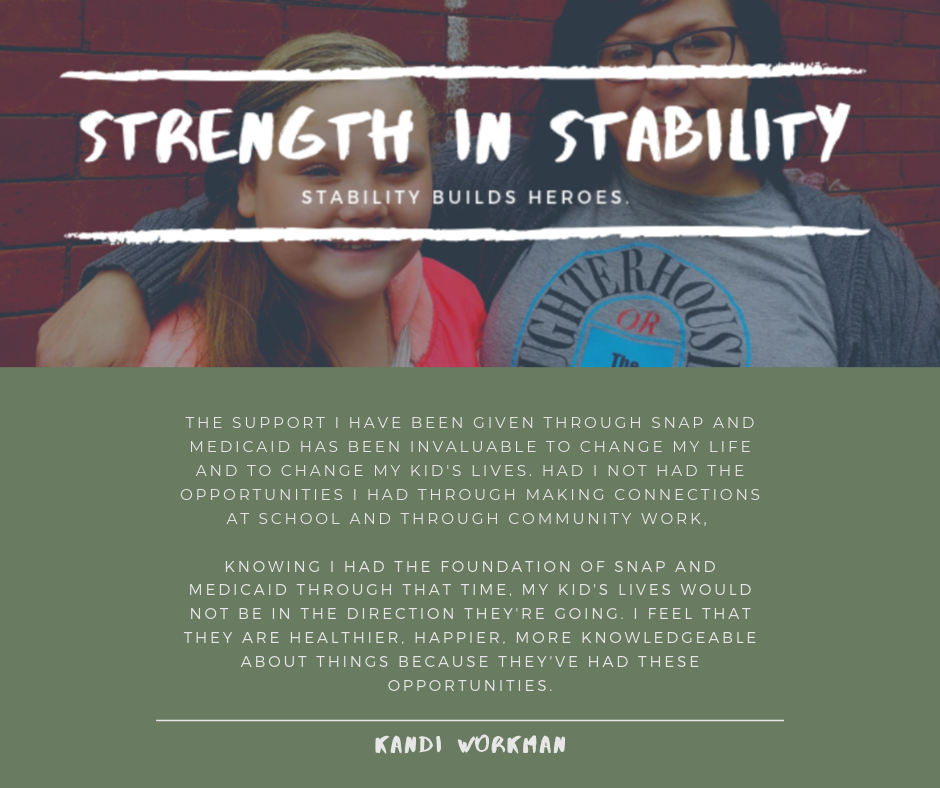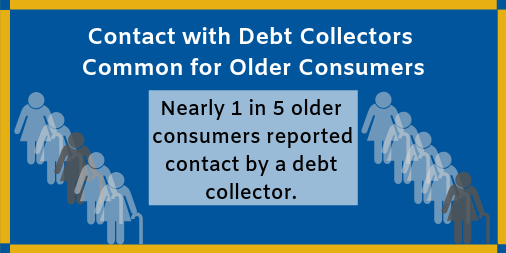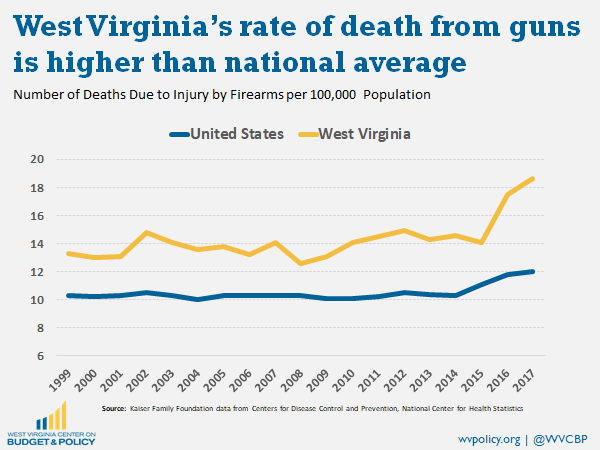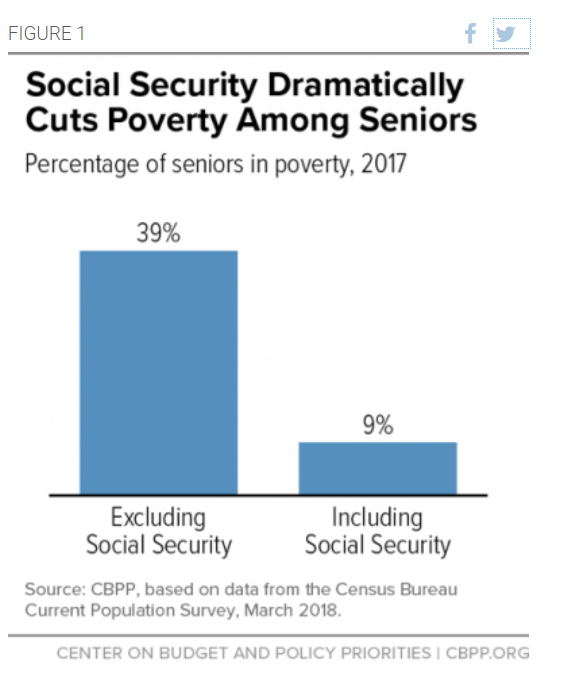On Monday, the Department of Homeland Security (DHS) and the Trump Administration finalized their public charge rule, which will allow immigration officials to deny green cards and citizenship to immigrants or would-be immigrants who are determined likely to receive even modest assistance from programs like SNAP and Medicaid at any point over their lifetimes. This rule is such a radical expansion of the public charge definition that more than half of all U.S. born citizens would fail the “public charge” test were it applied to them.
In West Virginia, 12,500 residents are at risk of direct impacts or chilling effects of the public charge rule when implemented. This figure includes families with at least one non-citizen with incomes below 250% percent of the poverty level. These are the families who are most likely to be using the benefit programs targeted by the public charge rule change, and mostly liking to face a “chilling effect.”
Read more in Sean and Kelly’s blog post.
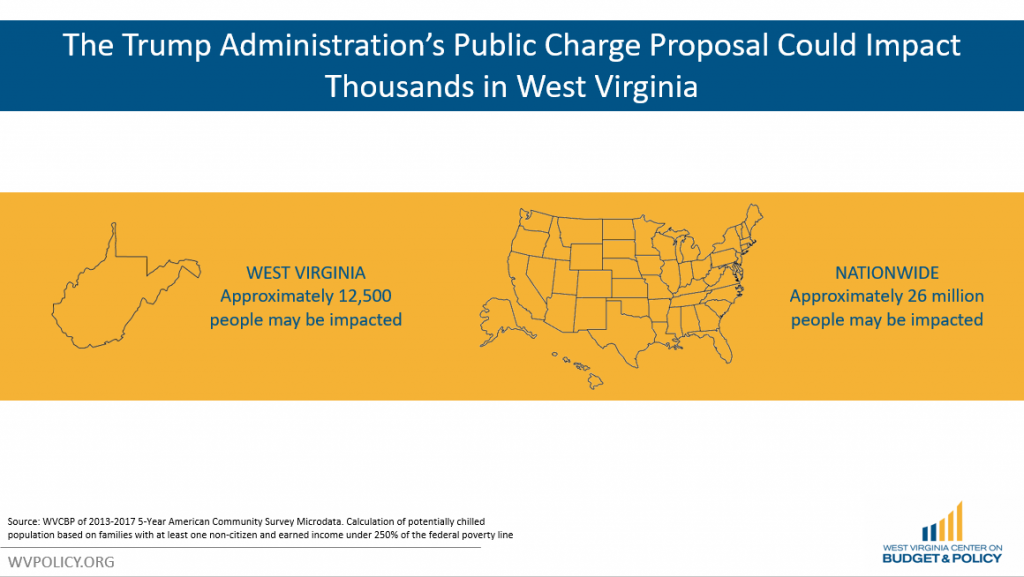
This week WVCBP board member Rick Wilson’s op-ed in the Charleston Gazette-Mail focused on how many West Virginia lives were saved so far due to Medicaid expansion which now covers over 155,000 West Virginians. As Rick states, it is more than urgent that we protect access to Medicaid, it’s life saving. Read more about the numbers behind Rick’s message in Ted’s blog post from last week.
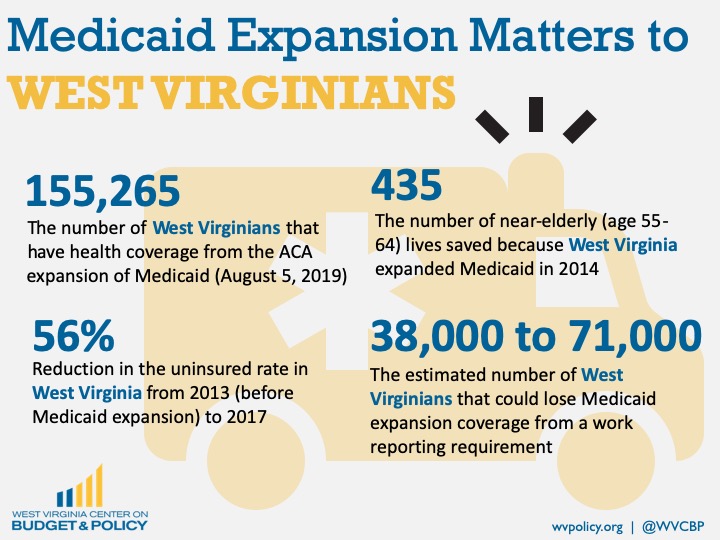
Everyone gets sick, but not everyone gets paid time off work to get better. Nearly half of West Virginia’s private sector workers, 46 percent, lacks paid sick leave, and people of color and low-income workers are the least likely to have access to this benefit. This means that those who have the most to lose by missing out on a day’s pay when they are sick are the least likely to have paid leave. Fortunately, West Virginia’s municipalities have the legal authority to pass ordinances to increase worker benefits and equity by extending paid sick leave to their residents. Paid sick leave is not only good for workers and their families, but also for businesses and local economies.
Read more in Kelly’s blog post.
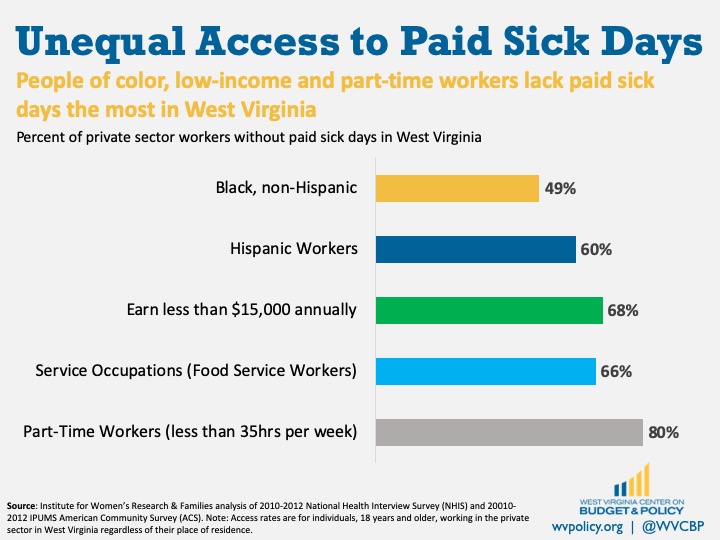
The Trump Administration has proposed a change to a key SNAP (food stamps) rule which, if implemented, would take away basic food assistance from an estimated 3.1 million people, mainly working families with children, seniors, and individuals with disabilities. The proposed rule would make it harder for struggling people to make ends meet. It comes in the aftermath of the President’s 2017 tax law, which conferred large new benefits on the highest-income households. The rule would also sidestep Congress, which rejected a similar harmful proposal when it enacted the 2018 Farm Bill.
Comment today! Comments due September 23.
